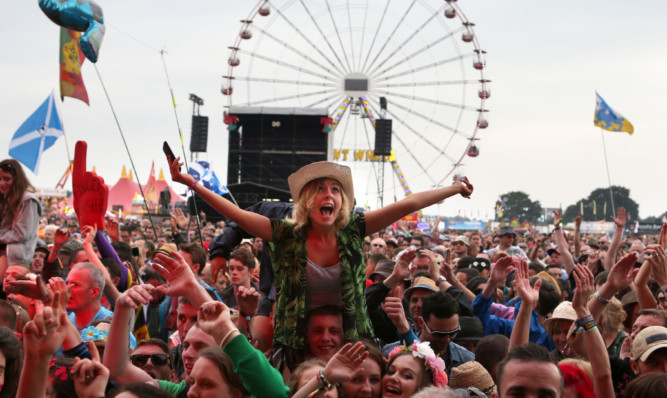
As someone who has a professional interest in the area it was music to my ears to hear that Scotland’s economy benefits to the tune of £280 million pounds a year from music tourism.
It’s very welcome news, especially for those who own the sites, the venues, the car parks, the ticketing companies, the hotels and nearby pubs and restaurants, among many other things.
As a live music promoter and venue owner, someone who has booked and promoted hundreds of acts (large and small) in all sizes of venues, I of course welcome this news . . . to some extent.
But I’m not totally rocking with delight. I do have some issues.
Namely this: it’s the promoters who bring in the acts for you to see, who have to pay them and meet their demands, who hire the venues, pay the legal fees, the security and crew and perform countless other costly tasks.
It’s the promoters who gamble on the event being a success, who take all the financial risks, yet they are the ones who benefit least from the overall income generated and national back-slapping that accompanies such “welcome” stats and figures.
It’s everyone else that profits, whether the event is a success or not.
Believe me, the financial risks and losses can be huge.
Yes, the potential profits and earnings can also be large if the promoters get it right, which I’m glad to report is usually the case otherwise there would no shows for the public to attend, but the downside can be absolutely horrendous.
One bad day or night, especially at festival level, can see your whole year’s takings and more wiped out in seconds.
The punter, though, will be unaware of this unfolding doom taking place, as in most cases will the band.
They will think the gig is busy, the sound incredible, the atmosphere amazing.
The promoter, meanwhile, is throwing up backstage, unable to watch the gig that is ruining him because he’s being financially shredded by the band’s tour management and agent.
I know only too well as it has happened to me. I once lost hundreds of thousands of pounds over two shows, which led to my business collapsing and jobs being lost.
The legend that is Chuck Berry was one of the shows.
He took the money and then didn’t turn up to play. He then kept the dough and hid behind a very expensive and complicated American legal team to avoid paying it back.
To me he is nothing more than
a dirty, rotten, money-grabbing rat-bag!
Still that was then, this is now and I continue onwards and upwards. Yet as I’ve already pointed out it’s everyone else who profits from promoters’ efforts.
Glasgow, the UNESCO City of Music, has made a fortune for the council on the back of the shows independently promoted at the SSE Hydro and other venues.
And what is the promoters’ reward? A hike in the rent!
Equally the same can be said for the hotel owners and many in the hospitality sector. No rooms could be found in Glasgow last week due to the arrival of Fleetwood Mac, yet not one room was given or one free meal offered to the promoters as a thank you
Just remember that when you buy a ticket for a show, it might
be the case that not everyone is whooping with joy on the night.
Backstage, in the bowels of the venue, there might be someone silently screaming in despair…

Enjoy the convenience of having The Sunday Post delivered as a digital ePaper straight to your smartphone, tablet or computer.
Subscribe for only £5.49 a month and enjoy all the benefits of the printed paper as a digital replica.
Subscribe